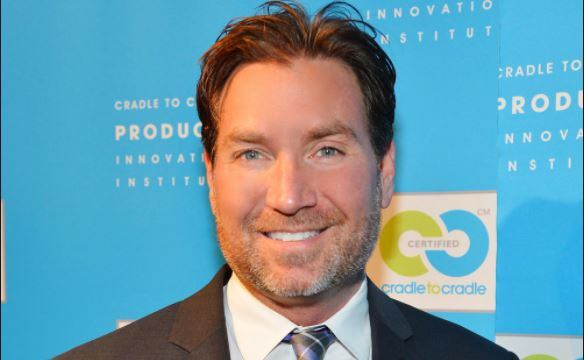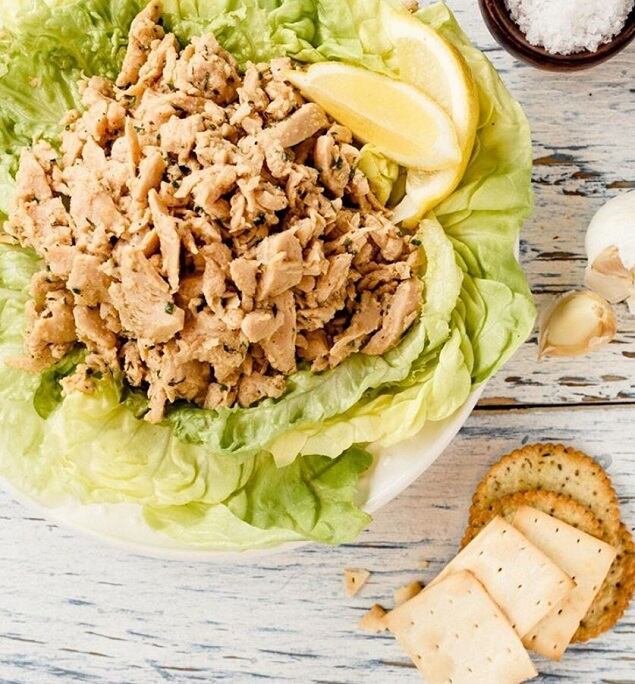Chief service officer of Beyond Brands and founder of Steaz, Eric Schnell, along with a team of four other co-founders, started Good Catch Foods after identifying a “huge whitespace” in the seafood category.
Fish is the mostly widely consumed animal protein in the world and it’s also the one of the most endangered, according to Schnell.
The UN Food and Agriculture’s State of the World Fisheries and Aquaculture report found 90% of global fish stocks are overfished currently and the bluefin tuna (the most popular fish variety in the US) is on a fast track to extinction.
“The fish that are in the ocean right now are in a massive fight for their life,” Schnell said at the ACG Future of Food conference in Chicago.
“Right now, there’s roughly 30 or 32 brands internationally that are addressing chicken, beef, and pork, but no one’s really touched seafood yet.”

Regulatory vulnerability with seafood naming conventions?
If plant-based alternatives have faced backlash from the dairy and meat industries over naming conventions, what kind of resistance is Good Catch Foods expecting?
“There’s more law around meat and more law around chicken,” Schnell said. “The interesting thing about that is the seafood industry hasn’t lobbied or fought hard. Do I expect to get a couple punches? 100%.”
Fishy taste without the fins
Good Catch Foods has spent the past two years developing a fish-free seafood alternative product and has honed in on a blend of six non-GMO plant proteins– chickpea, fava, soy, lentil, pea, navy, and pea – with pea being its main source of protein.
“Forty percent of our protein comes from pea. We match up nutritionally (13 to 17 grams of protein in our product), almost exactly with a piece of tuna or tuna fish in a can,” Schnell said.

But what about the distinct briny taste and smell of fish from the ocean? The company uses algae oil, a compound that fish naturally consume in the sea, to mimic the fishy taste profile.
“That oil is actually not created by them, it’s created by the plants they’re eating in the sea,” Schnell noted.
Algae oil also provides the long-chain omega-3 fatty acid DHA.
The company uses high moisture extrusion technology, a process that’s been around for decades, to produce its fish-free alternative.
“We put the beans in one side and out the other side comes a very thick substrate material that looks like tuna, but then we chop it a certain way, cure it, season it,” he said.
“It’s a very simple process but it’s an expensive process to get involved in.”
The company’s three SKUs - fish-free shredded tuna, frozen crab cakes, and fish patties - will be launching nationwide at Whole Foods in six months, according to Schnell.
Schnell said he envisions the tuna alternative packaged in pouches in three varieties – naked in water, Mediterranean, and olive & herbs – sitting right next to Starkist-like products on the shelf.
Demand already there
From the company’s early days two years ago, the idea of developing a plant-based seafood alternative generated a lot of support from plant-based food focused hedge funds such as Blue Horizon Corporation, backers of Just Inc (formerly Hampton Creek), New Wave Foods, and Ocean Hugger Foods, which became a part owner of Good Catch Foods.
“The seafood space just sat on their (Blue Horizon’s) desk because there was no one to invest in,” Schnell said.
Good Catch Foods is projected to hit $85m in five years, Schnell said. As a pre-revenue company, it has secured other multiple multi-millionaire investments including a recent $5.5m Series A funding round led by Stray Dog Capital earlier this year.
Blue Horizon has also helped pull in a number of investors drawn to Good Catch Foods’ cause and led to the building of its own production facility in Ohio after a number of co-packers turned the nascent business away.
“We couldn’t find a co-packer that would give us the line time so we had to pivot last year with our investors and start building a plant in Ohio,” Schnell said.
According to Schnell, the company is nearing the close of another cash infusion by the end of this month.
The fish-free seafood startup, which will be in Whole Foods stores across the US later this year, is also targeting a few other channels including food service as well as colleges campuses
“Colleges and universities will be a huge push for us as well. Most have on-campus plant based clubs… There’s a huge opportunity with the young generation,” he added.
